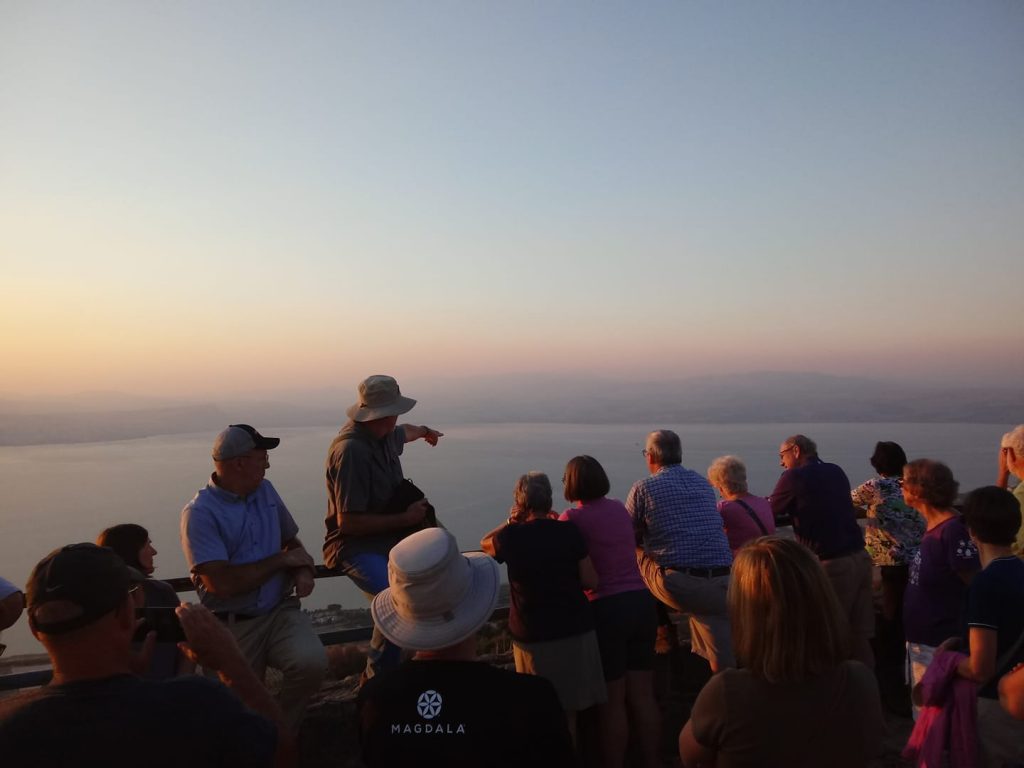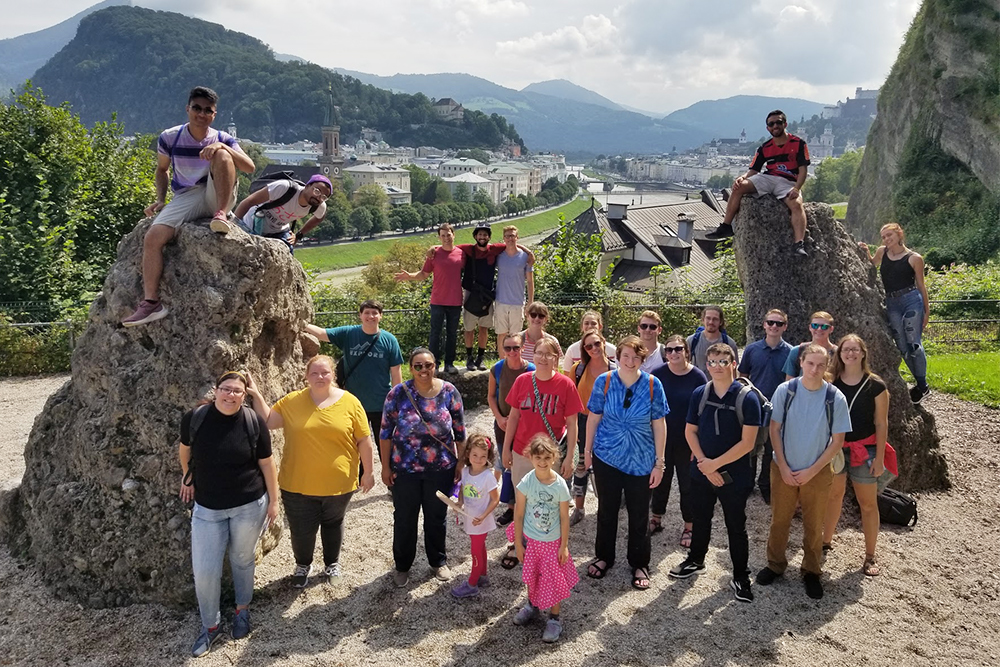Eastern Mennonite University student Kate Stutzman thought of herself as removed from the tragedy of the Holocaust. Her perceived distance — of time and geography — was bridged in “terrifying, horrifying reality” when Stutzman, among 25 students on a semester cross-cultural in Europe, visited the Terezin concentration camp in the Czech Republic.
In a blog post published on the EMU Cross-Cultural webpage, Stutzman wrote:
Fifteen thousand children spent time in Terezin, living life as best they could amid the most unimaginable conditions. For children, this means drawing. In the museum were displayed hundreds of drawings found after WWII made by the children. They ranged from idyllic family pictures and drawings of home, to conditions in the ghetto, even to depictions of the abuses they and their parents were suffering at the hands of the guards.
Among her reflections was a realization that “the potential for hate is inside all of us.”
While I desperately hope this hatred will never again take on a form like Holocaust, the instinct to exclude, isolate, and dehumanize people different from us is volatile if gone unchecked. And, maybe you don’t have to go to a concentration camp to realize that, but it makes it a lot more obvious.
The Europe semester, led by theater professor Justin Poole and his wife Amanda, is one of two cross-cultural experiences offered this fall. Nine students are also studying at EMU’s Washington Community Scholars’ Center, where they engage with themes of gentrification and social and economic inequality while working in internships in the city.
The Europe group’s studies and travel is focused on the theme of “Art as a Reflector and Shaper of Identity” with specific interest in how artists create and reflect European identity among such challenges as the migrant crisis, secularization, European integration and globalization.
The curriculum includes a number of prestigious theater, opera, ballet and musical performances; visits to UNESCO World Heritage sites and famous places of worship; German language lessons; and homestays with Muslim families in Morocco.
The students are also traveling through:
- Vienna and Salzburg, Austria,
- Paris, France,
- Prague, Czech Republic,
- Venice, Rome and Florence, Italy, and
- Marrakech, Fez, and Tetouan, Morocco.
View a timeline of EMU’s cross-cultural program.[/highlight]
Cross-cultural has been a core requirement of an EMU education for over 30 years. The trips, led by faculty who have lived and worked in the areas, have brought students to more than 80 domestic and global locations such as the Middle East, Lithuania, Central America and China, to live in and learn about the world from a different perspective.
Whether with a full semester abroad or as part of a summer or alternative program, students establish skills and experience for serving and leading in a global context.
NEW: Alumni and Friends cross-culturals
Two years ago, EMU launched the “Alumni and Friends” cross-cultural tours, which are about two weeks long and open to alumni, current and former parents and friends of EMU. Destinations include Cuba, Ireland, New Zealand, India, Turkey, Greece and Israel / Palestine.

A current group is now travelling through the Middle East with Linford and Janet Stutzman, who have led international semester and summer trips for EMU for many years.
These globetrotters have also been reckoning with the history of the Holocaust, and encountered a miraculous reunion at Yad Vashem: the World Holocaust Remembrance Center in Jerusalem.
Tim Swartzendruber ‘95, associate director of development, shared in a Facebook post about witnessing the reunion of two siblings and 40 of their descendants and relatives with the now-elderly woman who saved their lives during the Holocaust. Dina Gianopoulou and her sisters sheltered and fed the Jewish Mordechai family during the Nazi occupation of Greece. Ultimately, the Gianopoulou family helped them escape into the mountains.
“I was one of about 30 – 40 onlookers in tears as this photo was being taken on Sunday afternoon at Yad Vashem,” Swartzendruber said. “What a story of courage and love and the God-Spark within every one of us.”
